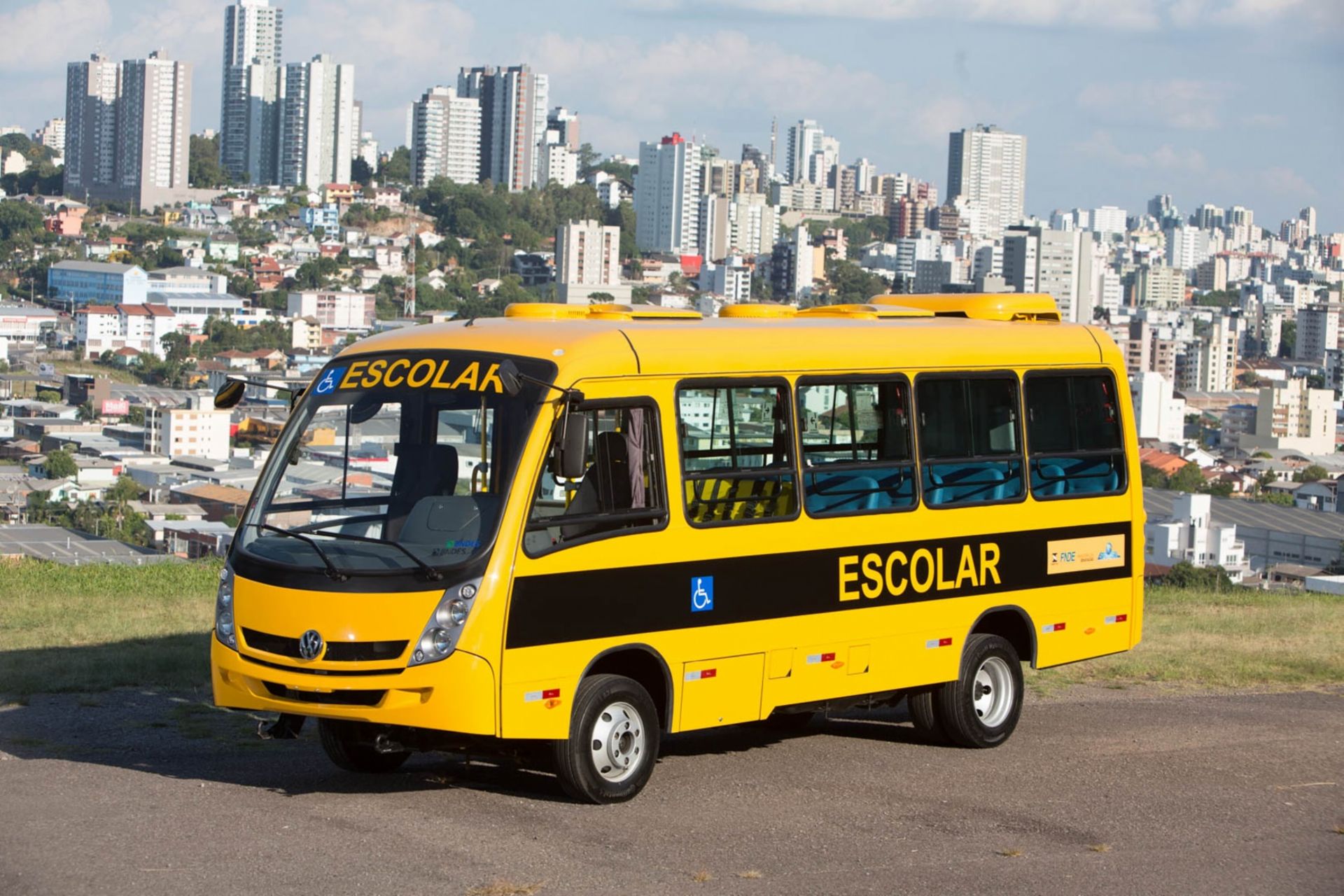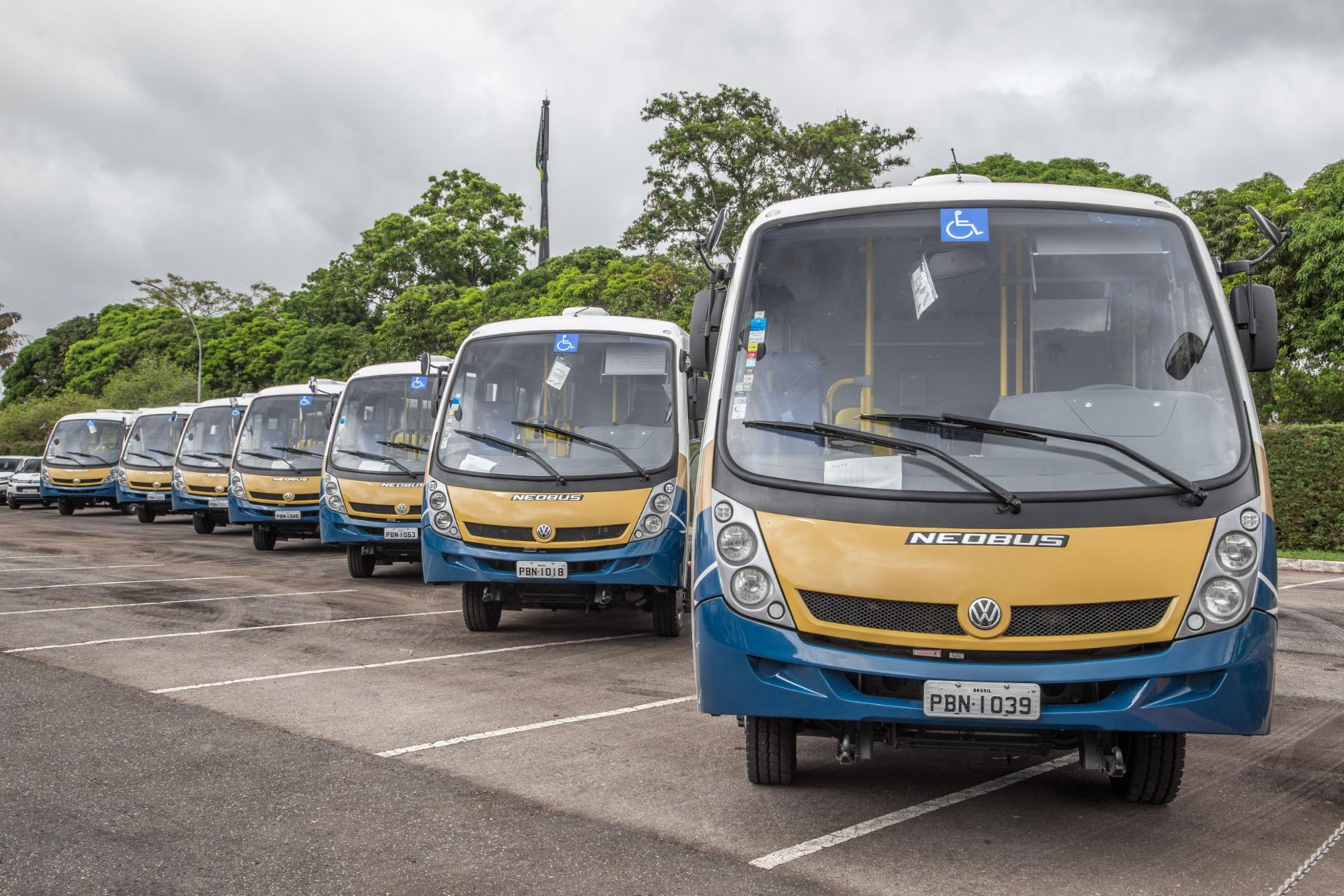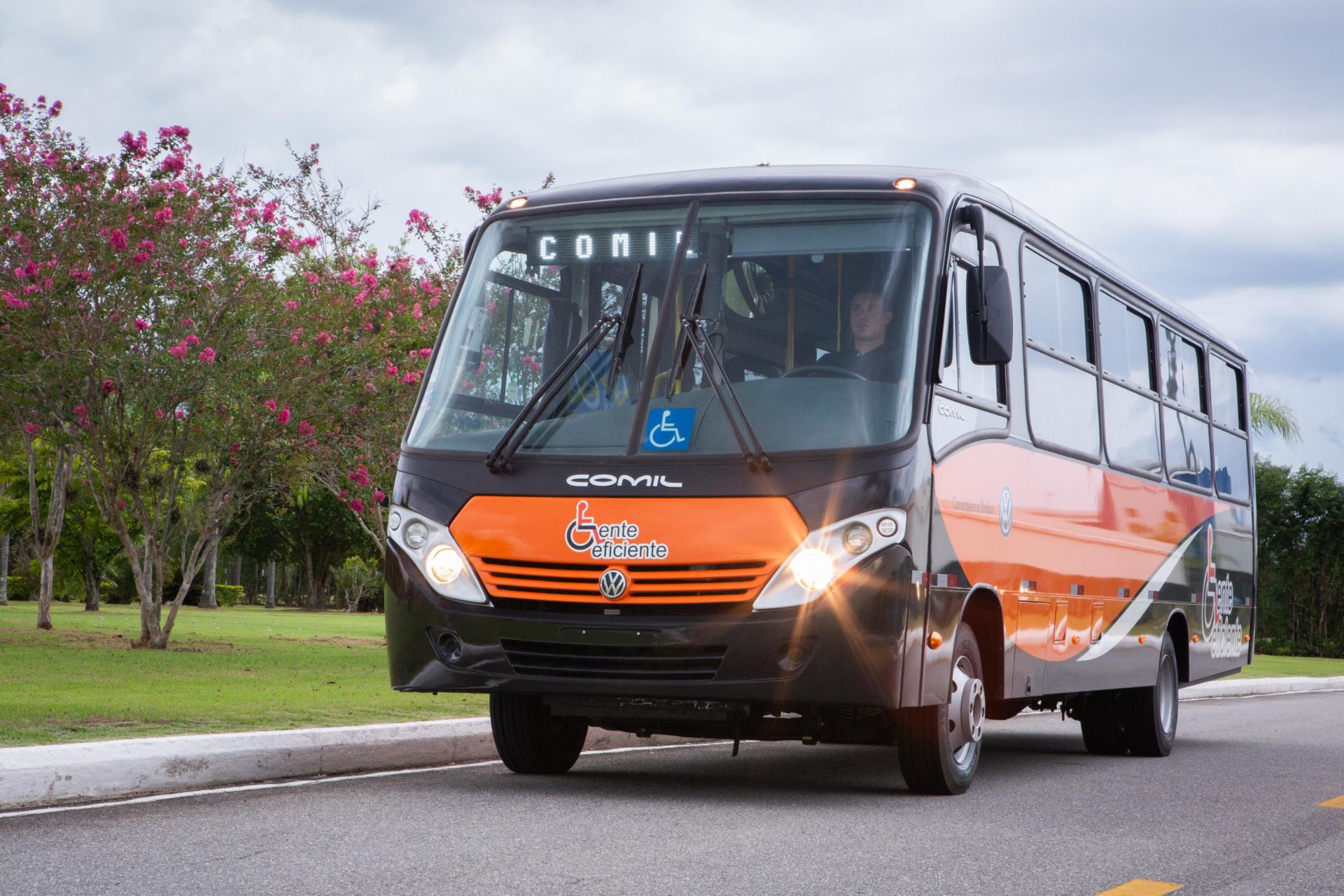Brazil is a country of enormous contrasts. In many cases, it is the line between urban areas and rural regions that defines an invisible frontier dividing wealth and poverty. Those who can, attempt to make their way into a city. This requires money, however—funds that many people simply do not have.
Public transport buses are therefore essential to help people along the path to a better future. The Ministry for Social Development (now the Citizens’ Ministry) have ordered 500 minibuses of the type Volksbus 8.160 ODR from Volkswagen Caminhões e Ônibus, which are slated for near-term delivery. With a seating capacity of 25 passengers, these vehicles can transport about half a million people per year—amounting to roughly 20,000 bus trips through the villages and towns of rural Brazil.
The ordered vehicle type, namely the minibus model Volksbus 8.160 ODR, was developed for traveling on rough, hilly roads in remote rural areas. “This bus features the technical equipment of an off-road vehicle, such as a more robust chassis with elevated suspension, a differential lock, mixed-size tires, and stabilizer bars,” explains Ricardo Alouche, Vice President Sales, Marketing, and Customer Service at Volkswagen Caminhões e Ônibus.
Most likely turning these buses into a very popular means of transport is an additional advantage: “All buses are equipped for the disabled, and access with a wheelchair becomes a trouble-free experience,” says Alouche. During the model development phase, Volkswagen Caminhões e Ônibus also thought of passenger-comfort factors. “As temperatures in Brazil are either extremely hot or exceedingly cold, we equipped the buses with both air conditioning and heating.”
How can access to modes of transport be improved in rural regions?

Incidentally, the Volksbus 8.160 ODR is the very model that has already been deployed in Brazil for the last 12 years, via the school route initiative Caminho da Escola. The objective of Caminho da Escola is to ensure that children experience a safe commute to their educational institutions, which are quite often far from their homes. Every year, 18,000 VWCO vehicles transport about four million children to school.
“Akin to the school bus program, the Citizens’ Ministry creates new opportunities for all social classes in Brazil,” says Marco Saltini, Director of Governmental and Institutional Matters at Volkswagen Caminhões e Ônibus. “The 500 new buses are intended to support the integration of a poorer population, primarily made up of people living in remote regions. And the objective is offering them approximately similar opportunities in the countryside as compared to urban areas.” Ricardo Alouche adds: “In working with the Citizens’ Ministry, the minibus program provides a new standard, not only in rural Brazil but also in major cities. In Resende, the location of our plant, several of these buses are already in operation. And we’ve observed that they offer enormous benefits to people.” Marco Saltini comments: “As we are well aware that the rural areas in our nation need our support, we’re proud of this program and are glad to implement it, as we are determined to proactively contribute to social change.”

